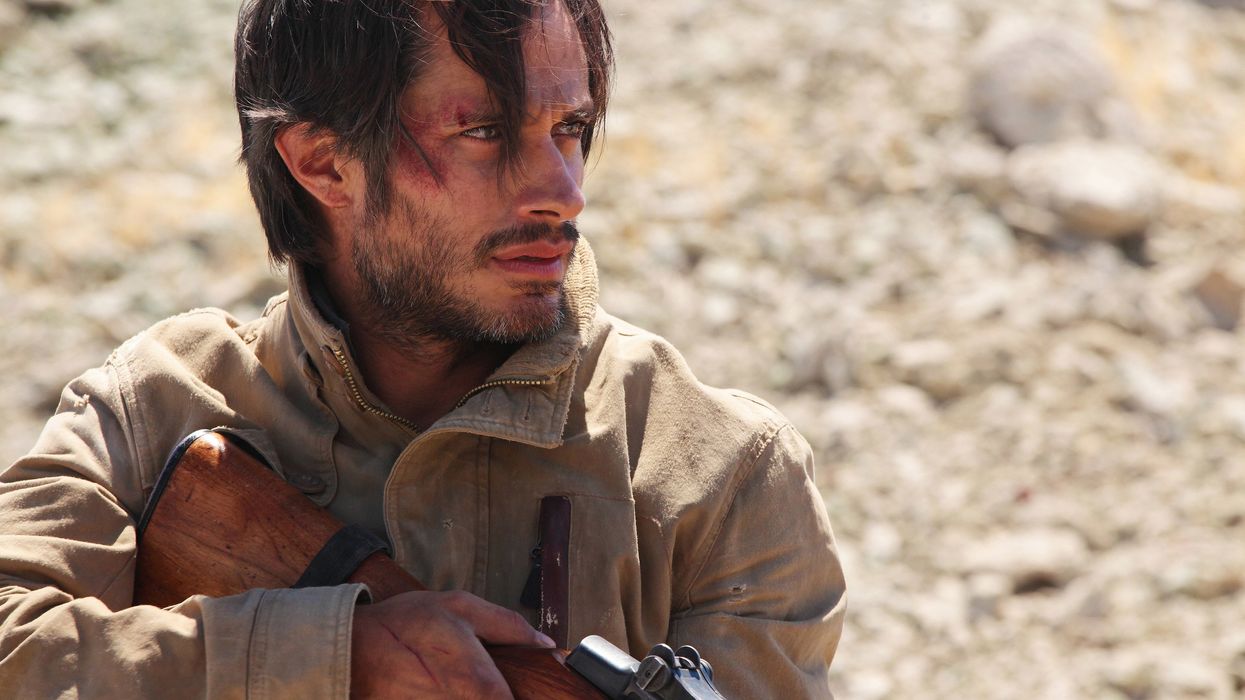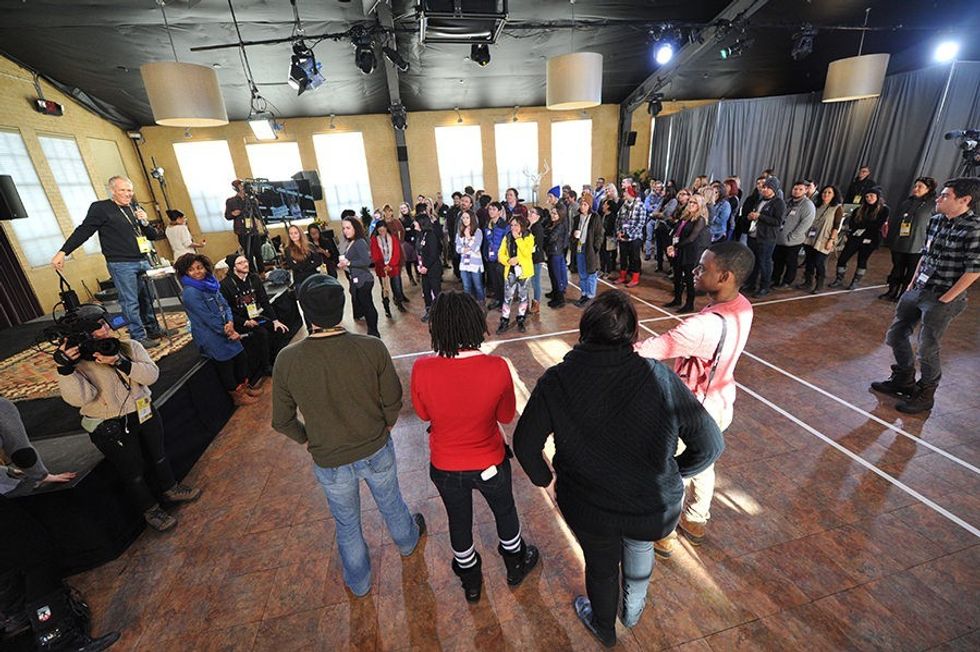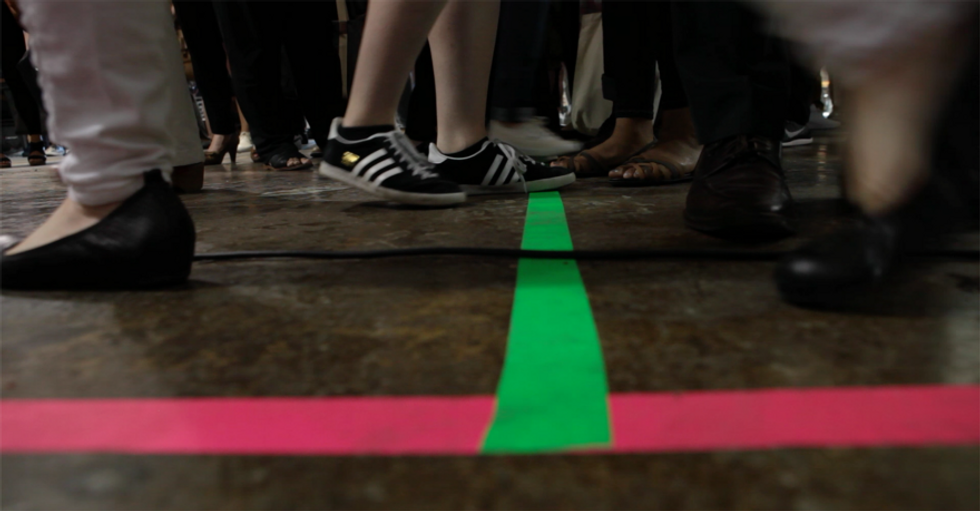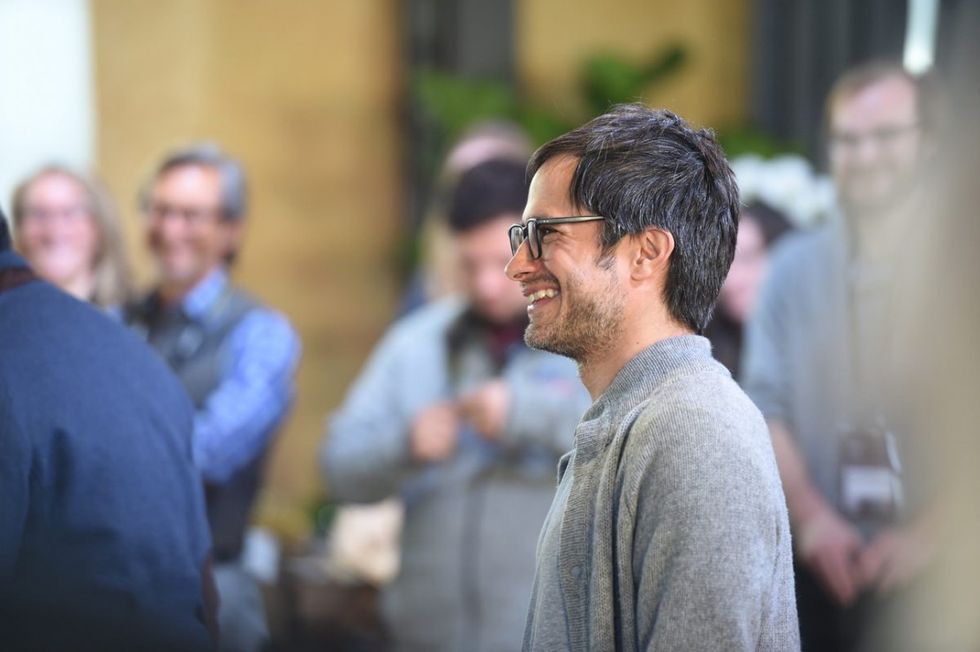Are You Making Ethical Movies? Sundance Filmmakers on Creating 'Fierce' and 'Active' Art
Gael García Bernal and Anand Giridharadas explored how empathy affects their lives and work at Sundance.

The current political climate in America is an unavoidable discussion—and it should be, even at Sundance. Art and politics have always been inherently tied to the human condition; art expresses it, and politics regulate it. And while the government continues to directly affect those who make art, the two are inseparable.
In fact, art history's most fruitful eras were born of socio-political disruption. The decline of the Catholic Church and widespread trauma from the Black Plague gave rise to the Italian Renaissance. Some of America's most iconic music was written while the country was at war in Vietnam. Through turbulence, artists will rise.
Though Sundance is not an explicitly political event, as Robert Redford mentioned at the opening press conference, the festival simply cannot ignore the stories filmmakers are telling. And many of those are political.
Art and politics have always been inherently tied to the human condition; art expresses it, and politics regulate it.
In recognition of these indelible ties, the Sundance hosted a panel on empathy this year which served as an exercise in that most crucial human—and filmmaking—quality. It was hosted by Philip Himberg, Artistic Director of Sundance Institute's Theater Program, in collaboration with IDEO, and featured Anand Giridharadas (author, columnist) and Gael García Bernal (actor, filmmaker) as speakers.
Perhaps as a result of the theme, the panel unfolded in a non-traditional, interactive format. Himberg presented a game: each round, the audience had to move around the room in response to "versus" statements. The center of the room was neutral, while the left and right sides represented opposing ideas. Whatever your politics, this panel's biggest takeaway is that we should all be making art with firm empathetic intentions.

Should film disrupt or unite?
"The time for films to say and hold certainties is long gone," said Bernal. "I think it's time for films to raise questions. It is important for films to have a Brechtian approach—to bring in a problem and make the audience responsible for carrying that problem. And that, in a way, unites."
Giridharadas followed up: "I think so much of our education and training is trying to unite us. We all study the Constitution and the same books growing up, and I think most people's lives are more in a rut than they wished they were. No one imagines that for their life when they're 18, but by the time you get to a certain age, you kind of think the same things, and your friends all think the same things, and you go to the same kinds of coffee shops, and you're limited."
"And when you pay $10 to go to a movie," he continued, "it feels like that's a really rare chance to get thrown on your butt. And to maybe be displaced."
John Cooper, the festival's Director, argued on the side of unity. "I'm really all about the happy ending," he laughed. "Really, the uniting part is when you show us all the problems, then you show us a solution... people just walk away from disruption sometimes with nothing. It makes them uncomfortable. I've seen audiences here very uncomfortable and they just walk away."
"The time for films to say and hold certainties is long gone. It's time for films to raise questions." — Gael García Bernal
Filmmaker takeaway: Ask yourself about your film's story goals and intended consequences. Do you believe that causing disruption is enough? Or should you present solutions in an attempt to unite your audience?

Does empathy come from instinct or practice?
Bernal and Giridharadas stood together again on the side of "cultivated practice."
Giridharadas began by speaking about the empathetic work he went through for his last book, The True American: Murder and Mercy in Texas. "I think when you see someone crying and you say, 'Oh, I'm so sorry,' or someone has a loss, we often use the word empathy for that, but that's not what I actually take it to mean," he said. "And I'm speaking as someone who writes and thinks about it in a professional context first. It's very easy to scrunch your face up when someone else seems sad, and quite an important thing to do in many situations."
"This word, empathy, is perhaps the only reason why I keep acting." — Gael García Bernal
But in work, empathy is more active. "I wrote about a white supremacist. He's a white supremacist who was very poorly educated, who was a murderer, and had never left Dallas, Texas. So, except for the murderer thing, we had nothing in common." (That's a joke.) "And so, it wasn't a gut reaction understanding this guy. If I had to rely on that, I would've never been able to write the book. It took me a really long time, thinking reading, going over, doing new drafts... even rewriting myself to understand."
The way he did it—rather, the way he cultivated practice—was in "trying to not treat him as a whole with whom I have no connection, but trying to break him down into blocks with whom I may have a connection."
"If you can break someone down like that," he continued, "you often have links to their building blocks, even if you don't have a link to their being."
Bernal weighed in with his own experiences. "This word, empathy, is perhaps the only reason why I keep acting," he said. "I've kind of come to terms with the idea that acting is a work of empathy, an interesting and an amazing way of cultivating that empathy. If you're going to interpret the character of a person that killed someone, I don't identify with that person, but I can empathize emotionally. Whatever [their motivation] is, I want to discover it."
Filmmaker takeaway: Tackle characters you don't innately understand. Break them down to their "building blocks" and try to empathize with individual traits.

Should a leader show grace or action?
The room—and our two protagonists—were fairly divided on this one.
Giridharadas was torn. With the mention of administrations past and present, he expressed both a love of and a concern for leaders with perhaps too much grace. "I feel like it's a limited value," he said, "that it sometimes prevents you from being fierce and being truthful."
"To be graceful is to be radical." — Gael García Bernal
Bernal was not so sure: "I'm very surprised that grace is not considered an action." Referencing his own experiences in Mexico, he said, "I come from a country that's deeply hurt right now. And we definitely need this narrative of grace to come together and unite in a benevolent way with benevolent actions, with compassion, and also with a lot of valor. Because nowadays, according to the narrative that's been established, to be graceful is to be radical. To do good will is a radical thing. To care for the other is radical. And that is an action, an inherent action. It is what motivates good things to be done."
Filmmaker takeaway: Consider this debate in the context of leading a set. Are you a director with grace? With resolve? Does it have to be one or the other? And how would those leadership tactics impact the experience of your crew—and in turn, the quality of your film?
Is progress most effectively achieved with compassion or indignation?
The room was firmly decided on this one: almost no one stood on the side of righteous indignation.
Except Bernal. "I'm actually here right in the middle," he said. "I think that, in a way, compassionate empathy is something that I carry, or I'm always in the process of, but the indignation is the line that you draw or the point of refusal."
Giridharadas agreed and expanded on that concept. "First of all," he started, "I think that these two things, unlike some of the others, are actually wonderful collaborators. And when I think about history and the story of progress, I think either of these engines on its own would crash the plane but I think together, [they work]."
He continued, "There's a kind of cyclical nature and at most normal moments [compassionate empathy] is healthy; you don't have a society if you don't have compassionate empathy at some measure. But you get to a moment where something needs to be shaken up, some people need to be dislodged from a position of power. And you need that [righteous indignation]."
Filmmaker takeaway: If your film is trying to impart a message of some kind, through which method are you conveying it? Considering the cultural context of your story and ask: Is it time to shake things up?
You can stream the full panel here.











